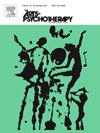“After the Tempest”: Assessing audience response through Playback Theatre
IF 1.5
3区 心理学
Q3 PSYCHOLOGY, CLINICAL
引用次数: 0
Abstract
Audience response is linked to a production's intentionality towards its audience. Playback Theatre is a form of community theatre designed to facilitate the audience’s interrelations. Applied as a method of reflection, it can explore tendencies and dynamics in specific audiences. This project analyses the impact that a theatrical play had on its spectators, as this was revealed through Playback Theatre. The play involved was Shakespeare’s “The Tempest”, which raises existential themes: trust, alliance, betrayal and revenge. The production was based on a two-part adaptation of the play for six performers. In the first part, the performers enacted their roles, while in the second, they “de-roled” and improvised on the audiences’ reflections. Seventy narrations in thirteen performances were recorded and analysed with the consent of the audience members. The data were assessed by the method of “Narrative Reticulation”, which focuses on four performance areas: guidance, atmosphere, spontaneity and story. Further “Thematic Analysis” of the shared stories disclosed those themes of the play that affected the audience. The results show the potency of The Tempest to foster intellectual engagement, interpersonal bonding and psychic resilience in its audience, the prominence of forgiveness versus revenge being the essential issue.
《暴风雨之后》:通过回放剧院评估观众的反应
观众的反应与作品对观众的意向性有关。回放剧场是社区剧场的一种形式,旨在促进观众的相互关系。作为一种反思的方法,它可以探索特定受众的倾向和动态。该项目分析了戏剧对观众的影响,因为这是通过回放剧院揭示的。这出戏是莎士比亚的《暴风雨》,它提出了存在主义的主题:信任、联盟、背叛和复仇。这部作品是根据这出戏的两部分改编而成的,由六位演员出演。在第一部分中,表演者扮演了他们的角色,而在第二部分中,他们“去角色化”,根据观众的反应进行即兴表演。在观众同意的情况下,记录和分析了13场演出中的70个旁白。数据通过“叙事网状”的方法进行评估,该方法侧重于四个表现领域:引导、氛围、自发性和故事性。对共享故事的进一步“主题分析”揭示了影响观众的戏剧主题。研究结果表明,《暴风雨》在培养观众的智力参与、人际关系纽带和心理弹性方面具有巨大的潜力,宽恕与复仇的对比是关键问题。
本文章由计算机程序翻译,如有差异,请以英文原文为准。
求助全文
约1分钟内获得全文
求助全文
来源期刊

Arts in Psychotherapy
Multiple-
CiteScore
3.20
自引率
11.10%
发文量
66
期刊介绍:
The Arts in Psychotherapy is a dynamic, contemporary journal publishing evidence-based research, expert opinion, theoretical positions, and case material on a wide range of topics intersecting the fields of mental health and creative arts therapies. It is an international peer-reviewed journal publishing 5 issues annually. Papers are welcomed from researchers and practitioners in the fields of art, dance/movement, drama, music, and poetry psychotherapy, as well as expressive and creative arts therapy, neuroscience, psychiatry, education, allied health, and psychology that aim to engage high level theoretical concepts with the rigor of professional practice. The journal welcomes contributions that present new and emergent knowledge about the role of the arts in healthcare, and engage a critical discourse relevant to an international readership that can inform the development of new services and the refinement of existing policies and practices. There is no restriction on research methods and review papers are welcome. From time to time the journal publishes special issues on topics warranting a distinctive focus relevant to the stated goals and scope of the publication.
 求助内容:
求助内容: 应助结果提醒方式:
应助结果提醒方式:


